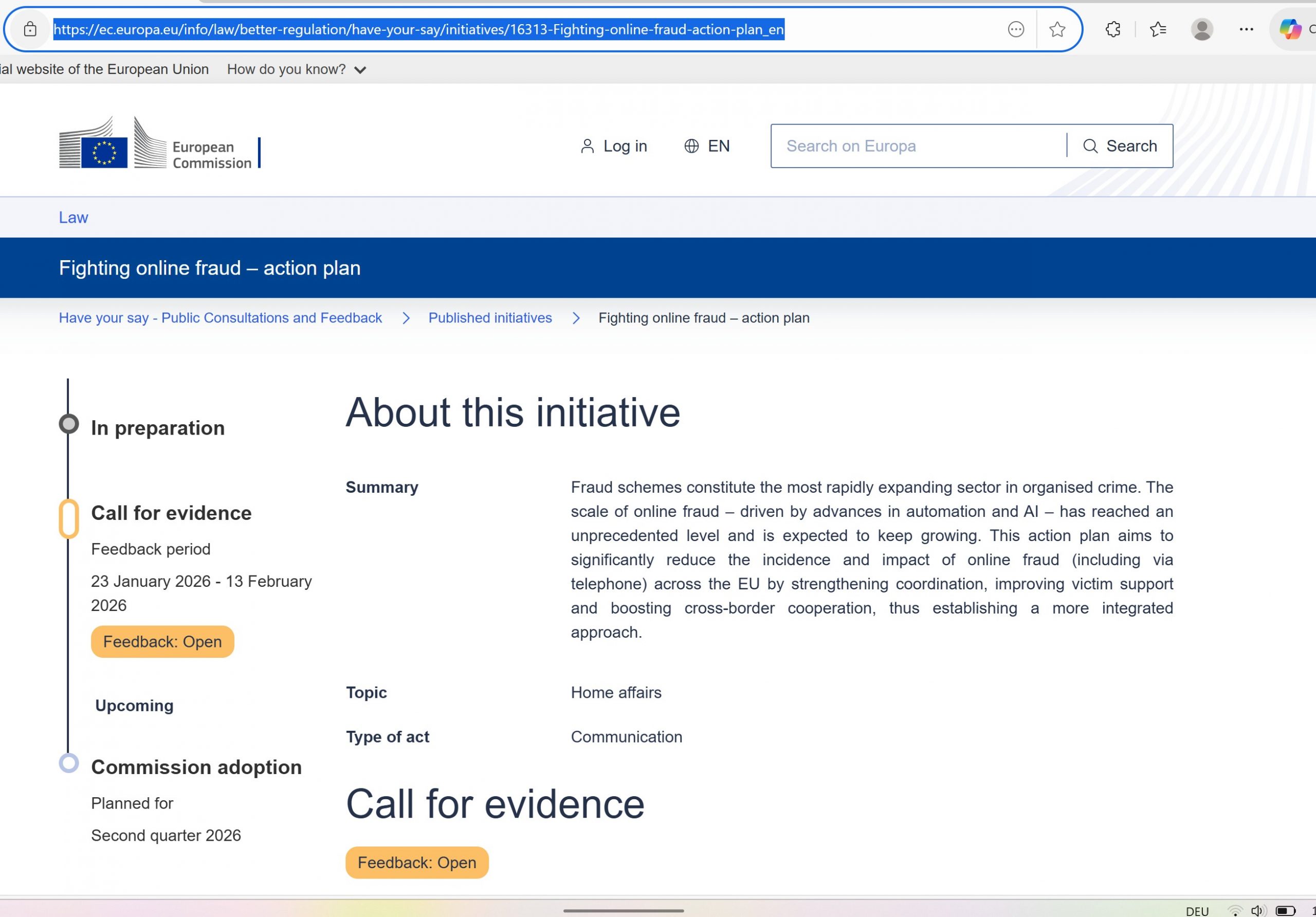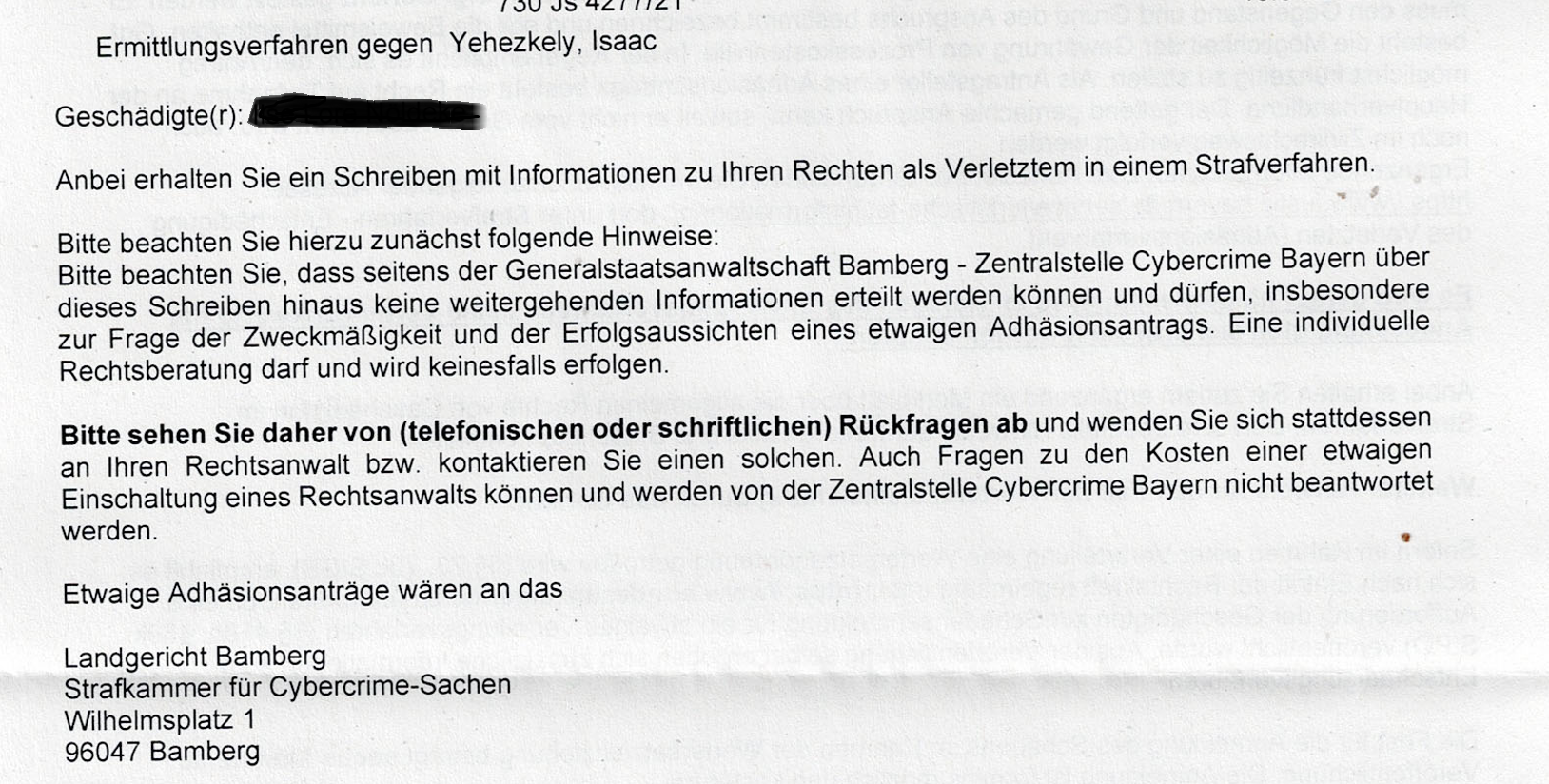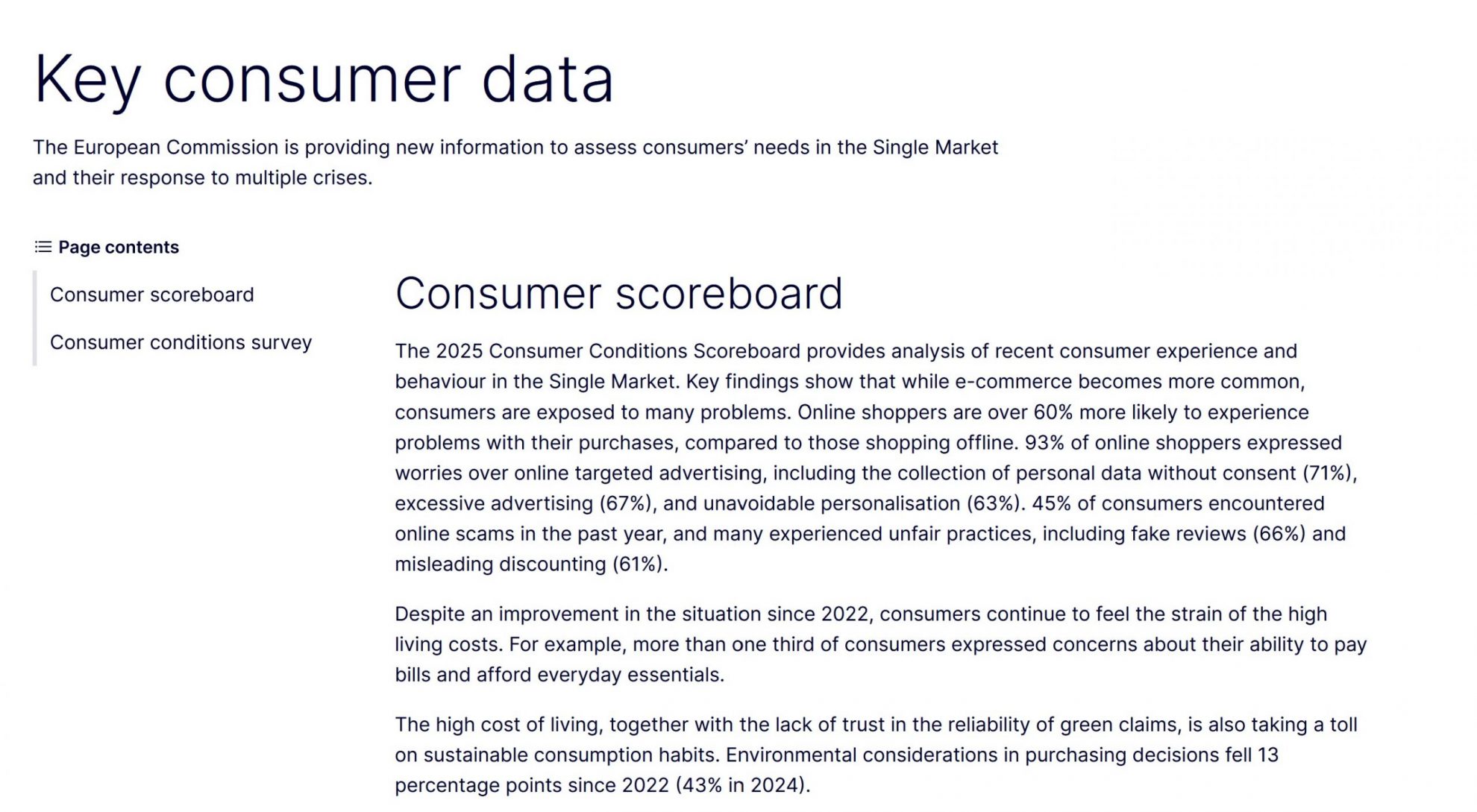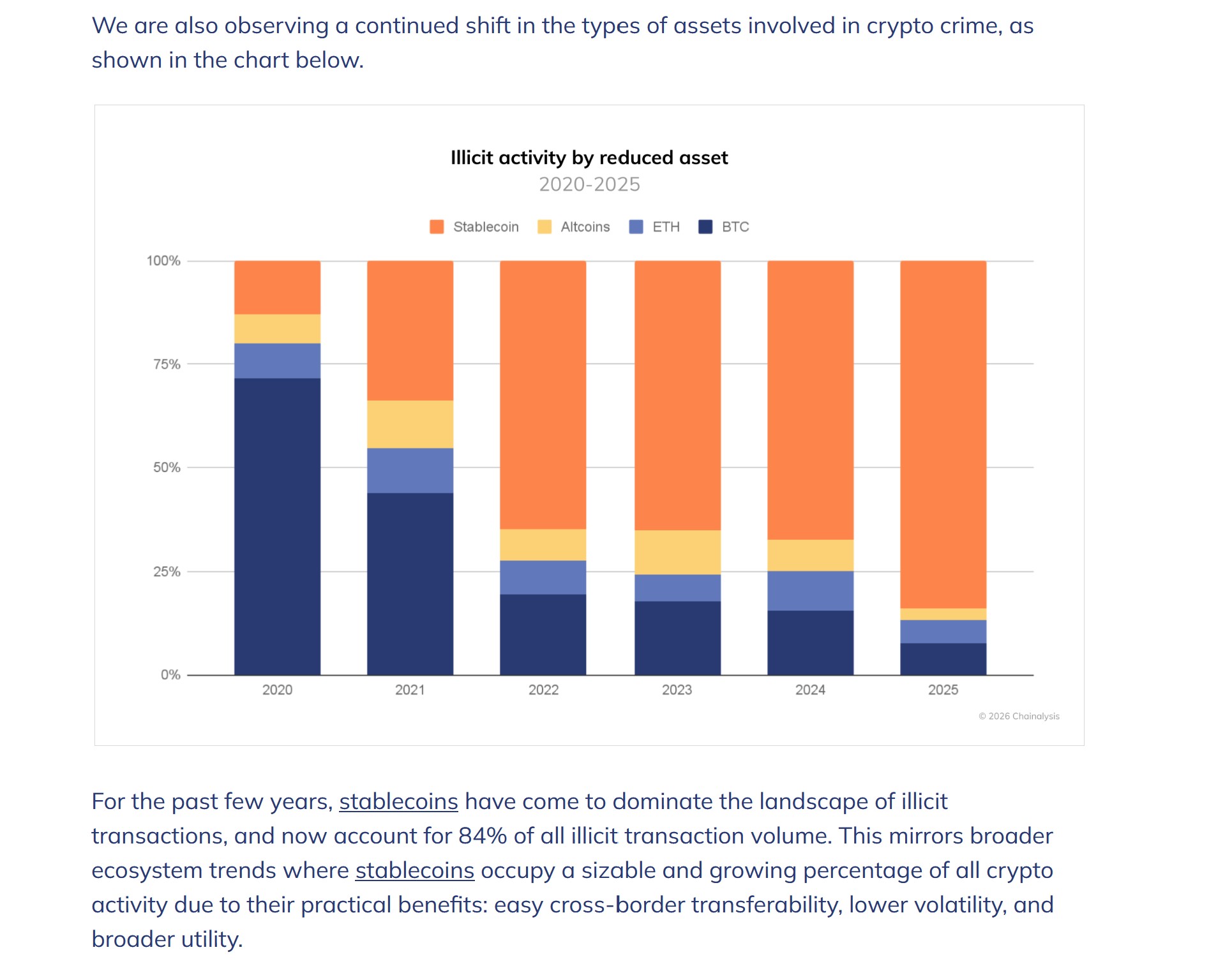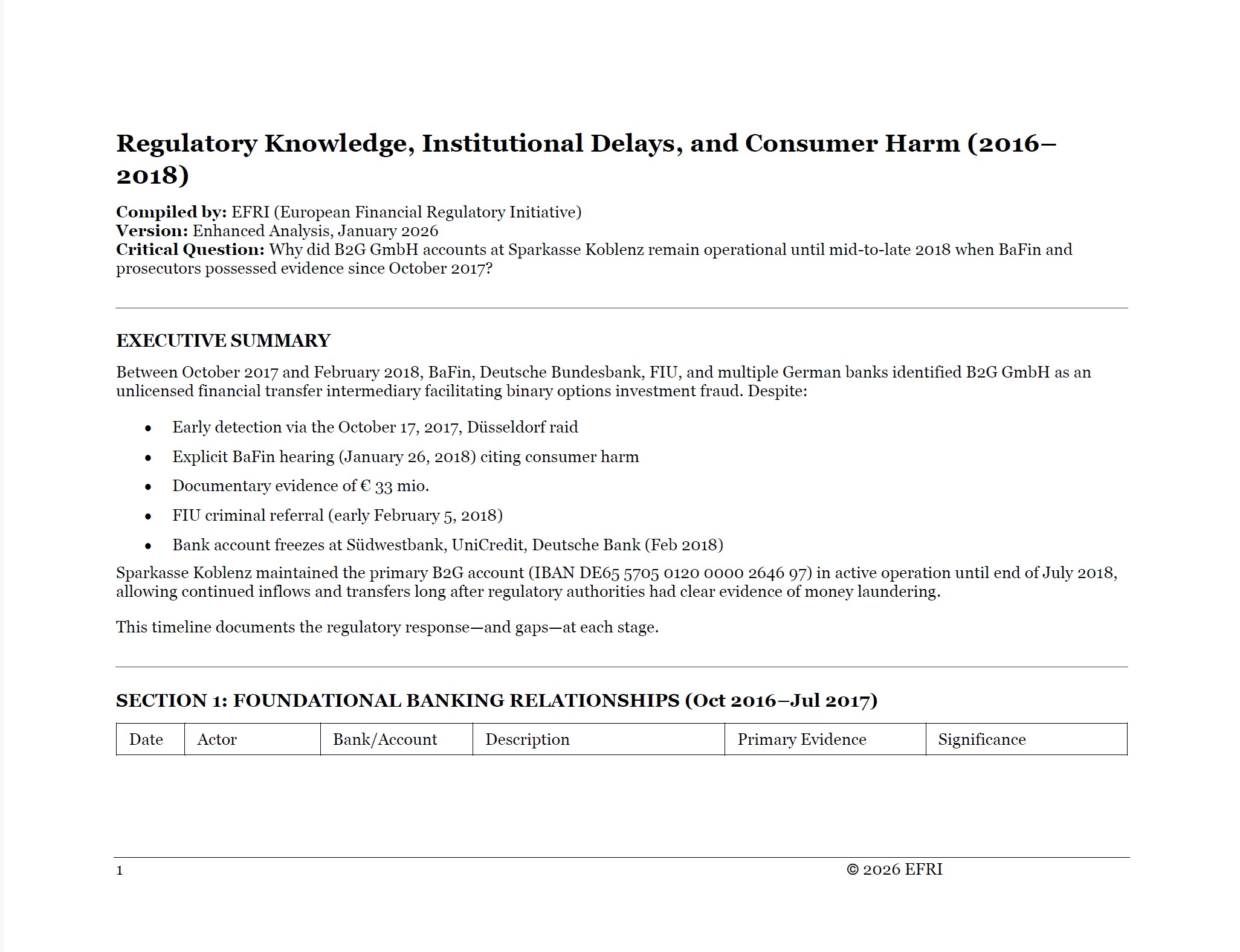The damage currently caused to small European investors by fraud on online trading websites (from now on, also referred to as #BrokerScams or #InvestmentScams) promising high returns for investments (right now mainly cryptos) in Europe is estimated at (at least) 1 billion euros per month (!). This is only a rough estimate, as, 15 years after the beginning of this type of crime, there has been no uniform terminology or reporting of criminal complaints for this type of crime in individual European countries.
No unified typologa in Europe!
This lack of uniform terminology and reporting hinders the central, efficient, and effective prosecution of this type of crime within individual European countries, let alone a coordinated prosecution of these crimes across Europe.
Cybercriminal organisations attack European retail investors.
This leaves European retail investors helpless at the mercy of the global mafia-style organised cybercriminals behind the hundreds of online #BrokerScams.
Fraudulent international criminal organisations, which have amassed massive financial resources due to the prolonged inactivity of law enforcement authorities, are establishing global organisational structures, deliberately exploiting the inability of European law enforcement authorities to work across borders. These criminal organisational structures include media houses (like Crypto Daily (owned by Uwe Lenhoff), affiliate marketing agencies, regulated and unregulated financial services companies, a booming boiler room industry and trading technology providers, as well as service providers such as lawyers and tax consultants who administer the countless shell companies involved. New #Broker Scams with new domains, offering services at most diverse payment service providers, and the appropriate boiler room support can be deployed using white-label solutions within 24 hours on the Web.
The suffering and crime that is happening daily in Europe, obviously unnoticed by the media and the public, is gigantic.
The unscrupulousness of these systems’ operators is indescribable, and the criminals’ hubris lies in the fact that they have been able to carry out their criminal activities largely unchallenged, especially in Western Europe, for years now.
The scale of the crime has increased as criminal organisations increasingly use cryptocurrencies for this type of activity.
Borderless Crime
The increasing digitalization of society and the economy in general and the associated virtualisation of money bring a new, massive threat—cybercrime. The combination of state-of-the-art technologies with new marketing methods and an enormous gap in the technological affinity of some Internet users create an unprecedented ecosphere for criminals. Traditional crimes like bank robbery or car theft are far less lucrative than cybercriminal activities.
Cybercrime knows no national borders. Using sophisticated social media web campaigns, billions of people can be reached most simply.
The damage sums reach immense amounts with the various online fraud systems. According to the UK National Crime Agency, cybercrime already accounted for more than 50% of all reported crimes in the UK in 2018[1]. According to the UK Financial Conduct Authority (FCA), investment scams alone caused GBP 197 million in damage in the UK in 2018[2].
The Measuring the Changing Cost of Cybercrime study conducted in 2019 by several European universities also provides evidence of the above facts[3]:
The study estimates that by 2019, 6% of the European population had already become victims of cybercrime.
Statistically, people in Europe are now more likely to become victims of cybercrime than of traditional crime.
It should be noted, however, that the data basis for the evaluation of figures in the area of cybercrime is currently still thin. Cybercrime is still a relatively new phenomenon for both statistics and authorities.
[1] Office for National Statistics, Crime in England and Wales: year ending March 2019, Link https://www.ons.gov.uk/peoplepopulationandcommunity/crimeandjustice/bulletins/crimeinenglandandwales/yearendingmarch2019
[2] FCA warns public of investment scams as over £197 million reported losses in 2018, Link https://www.fca.org.uk/news/press-releases/fca-warns-public-investment-scams-over-197-million-reported-losses-2018
[3] https://www.paccsresearch.org.uk/wp-content/uploads/2019/06/WEIS_2019_paper_25.pdf
Social media channels serve as the main advertising channel
Small investors are drawn to trust-inspiring and visually appealing advertising measures on social media platforms, particularly Facebook, Instagram, TikTok, and YouTube, with the promise of quick profits.
Boiler rooms/call centers as a critical success factor
After registration on the online trading platforms, the boiler room employees of the fraud systems will contact you immediately.
Call centres are called boiler rooms. Their employees receive massive success commissions from each successful deposit made by small investors, and they then systematically encourage these small investors to transfer larger amounts using professional psychological methods.
In Bulgaria, Serbia, and Bosnia and Herzegovina, massive call centres have emerged with employees possessing a wide range of language skills. These call centres utilise state-of-the-art technologies, databases, and customer relationship management (CRM) systems.
Psychologists train the boiler room agents, professional writers develop the interview guidelines, and experts create sophisticated customer profiles. Customer data is obtained from a wide variety of sources, and customers are segmented and processed as needed.
Sophisticated technology as the basis of fraud
Fraudsters pretend to run state-of-the-art trading tech, display fabricated profits and claim funds are readily withdrawable.
In this time of happiness, boiler room agents establish a deceptive relationship of trust with retail investors. This relationship of trust is ultimately used to deprive the retail investor of all their assets and leave them financially and psychologically exploited.
Legal and illegal European payment service providers are another critical success factor. (Money laundering as a service).
- From these accounts, the funds are subsequently transferred directly to offshore accounts of the beneficial owners of the fraud systems.
- Or they use the services of intermediaries of illegal payment service providers: In the process, shell companies are systematically set up in Western Europe with accounts with well-known European banks. These accounts receive investor funds, which are then transferred to the offshore accounts of the beneficial owners of the fraud systems after a commission payment for the payment service providers is deducted. These shell companies typically offer this service to multiple fraudulent systems.
Shell companies (from all over the world) with German bank accounts are traded as “premium accounts” and receive a high commission for the service.
Total loss as a result
As soon as the small investors want their investment to be paid out together with the reported profits, the customer relationship immediately deteriorates, and within a short time, the simulated profits translate into a total loss of the investment. The indication of an incorrect procedure is acknowledged with threats, account closure, and client advisor inaccessibility.
In 99% of cases, victims ultimately suffer a total loss. In the worst case, even with an additional financial burden, many victims are encouraged to take out a loan through false promises and assurances.
If it is evident that “nothing” can be obtained from the retail investor, the customer data is sold to other operators of online trading platforms or so-called funds recovery organizations. This is the beginning of another month of harassment of the injured parties by email and telephone. Countless spam emails and callers from all over the world continue to harass the victims for months.
These recovery organizations are often run by the same fraudsters as the trading platforms; now, they consciously try to exploit the distress and desperation of the cheated again. It is promised against the down payment of further money to retrieve the money lost in the fraud system. This money is also lost as a result.
Rocovery scammers show up!
The drama of the cheated small investors, however, is not over yet because, after the depressing and disturbing realisation that they may have been cheated twice, a new tale of suffering begins for them: the trip to the involved financial institutions, supervisory authorities, and law enforcement agencies with the request for assistance.
Rejection by financial market supervisory authorities
For years, European financial market regulators have received complaints from injured retail investors. These complaints are either not responded to at all or answered with meaningless and rejecting mass emails.
No or limited prosecution by the law enforcement authorities
The reporting of fraud to law enforcement is also frustrating for the victims: the lack of understanding of the nature of this cybercrime results in 99% of criminal cases being reported by regional police authorities in European countries
- not being accepted at all,
- to be directly rejected- for example, due to involved foreign relations (!)
- are being dismissed as “conscious gambling.”
90% of the aggrieved parties stated that, even when the criminal complaint was filed with the prosecution authorities, the enforcement agency informed them upfront that there was virtually no chance of catching the fraudsters and recovering the stolen money.
Problem-solving approach!
We have identified the following solutions which must be taken as soon as possible by the European governments to put a stop to this type of crime:
- The European authorities must immediately begin to increase their efforts in the active, efficient, and effective (at least Europe-wide coordinated) prosecution of this type of crime.
- Social channels such as Facebook and YouTube must be requested to stop the fraudulent advertising of #BrokerScams Europe-wide, if necessary, in court.
- EU countries that allow the #BrokerScams to operate on their territory (especially Bulgaria and Estonia) and those whose financial market supervisory authorities allow “facilitated” access to “pseudo” licenses (Cyprus, Malta, etc., Estonia, and Lithuania) must be stopped.
- The EU accession candidates Serbia and Montenegro (currently home to countless #BrokerScams call centers) are threatened with an immediate halt to accession talks if the hundreds of call centers are not closed immediately.
- It must be made incomprehensibly clear to European legal and illegal payment service providers (fiat and crypto) that complicating such criminal activities is classified as contributing to a criminal organization and is threatened with massive punishments and immediate withdrawal of any granted banking license.
- A European central law enforcement unit specializing in these crimes and seeking international cooperation should be established without delay.
- A media campaign should be launched at the European level to draw retail investors’ attention to this type of crime.


